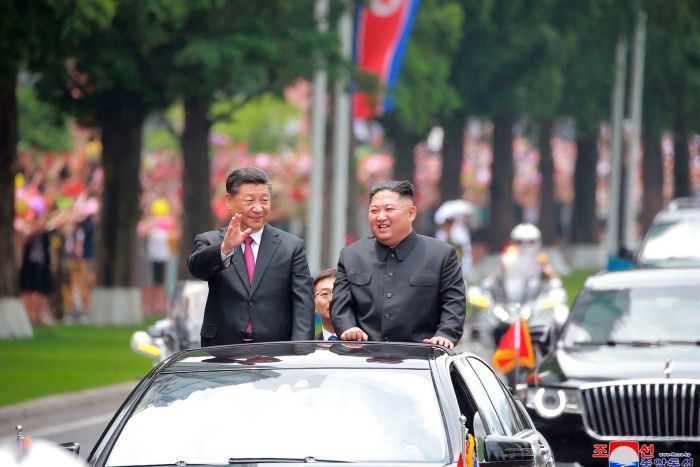Statistics on North Korea: Sanctions bite
North Korea is heavily reliant on China, which accounts for about 90% of the country’s trade. And Beijing’s decision to support tougher international sanctions against North Korea following its sixth nuclear test in September 2017 has put severe pressure on the economy.
- China’s imports from North Korea have slowed to a trickle, falling about 90% year on year in 2018, according to the Korea International Trade Association.
- The drying up of hard currency due to plunging trade is potentially creating an “economic crisis” for Kim, the state-run Korea Development Institute in Sejong, said earlier this month.
- Exports of food and fuel from China to the North have also tumbled. The fuel crunch has exacerbated decades of economic stagnation. North Korea’s oil consumption has fallen by about 80% from 1991 to 2017, according to the United Nations World Food Program (WFP).
- Less fuel has meant less diesel to run farm tractors and irrigation pumps, hitting farms already affected by droughts last summer. Last year, farmers had a little less than 90 milliliters (3 fluid ounces) of fuel a day to farm an area about the size of two soccer fields, according to calculations based on WFP data.
- The sanctions have led to shortages of other necessary agricultural items, including machinery and spare parts, and farm output has dropped in the provinces that make up North Korea’s southern and western breadbaskets, the World Food Program and Food and Agricultural Organization of the United Nations said in a May assessment.
- Paddy production declined at least 17% last year in South Hwanghae and North Pyongan provinces, regions that together account for half of North Korea’s rice.
In April, Kim Jong Un replaced his prime minister and leading technocrat Pak Pong Ju with Kim Jae Ryong, a veteran overseer of one of North Korea’s most impoverished provinces whose reputation for weathering tough times suggests leader Kim may also see a need to dig in rather than experiment should the sanctions continue.
[Bloomberg]

